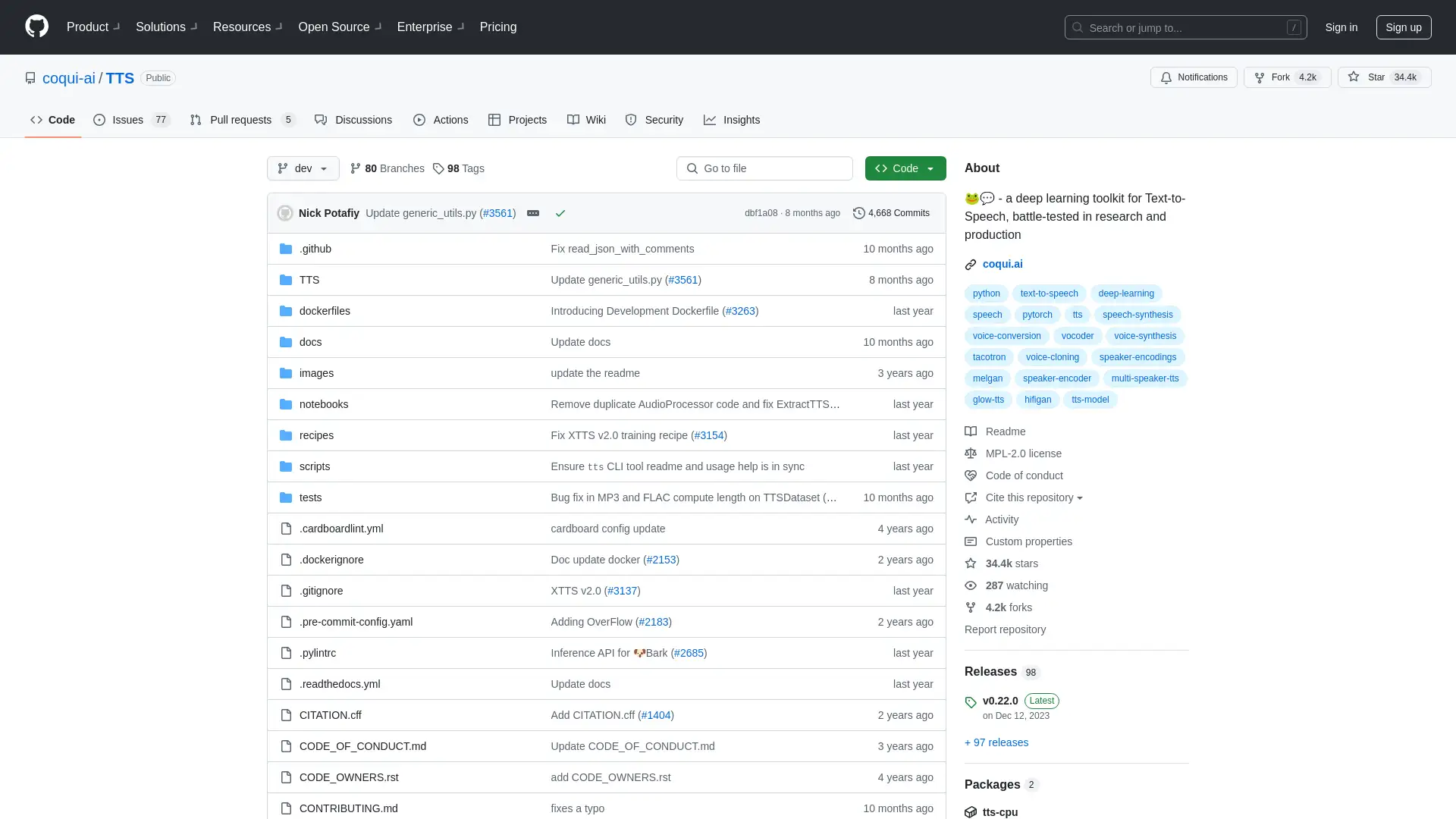Best 6 AI Tools for Open Source in 2024
Applio, Coqui TTS, Upscayl, Comfy UI, Genmo AI, Venice AI are among the best paid and free Open Source tools available.
Understanding Open Source AI Tools
Open Source AI tools are software applications designed for artificial intelligence development that are freely available to the public. These tools are developed and distributed under licenses that allow users to modify, enhance, and share the software. In the context of Open Source, AI tools empower users by providing flexible solutions for AI tasks such as image processing, natural language processing, and data analysis. These tools play a crucial role in democratizing AI by offering accessible resources for developers and enthusiasts to create tailored solutions for various tasks, ranging from model management to voice cloning.
Key Features of Open Source AI Tools
Open Source AI tools are characterized by their adaptability and user-centric design. They allow for modifications from simple tweaks to complex integrations, making them versatile for various applications. Unique features include robust UIs for model management, AI-powered image enhancement tools, and multilingual voice cloning systems. Users can also enjoy technical support through active communities, web-based interfaces for ease of use, and tools like text-to-speech and language learning models that cater to specific user needs. These tools offer scalability and the flexibility to be integrated with different platforms, ensuring they are fit for both novices and advanced users.
Who Should Use Open Source AI Tools?
Open Source AI tools are ideal for a diverse range of users, including developers, AI researchers, and those without coding experience who want to harness the power of AI. Novices can leverage these tools due to their accessible interfaces and comprehensive documentation, while experienced developers benefit from the customization options. Professionals from various industries, such as graphic design, language technology, and machine learning, can integrate these tools into their workflows. Additionally, educators and students exploring AI concepts can utilize these resources to experiment and learn without needing expensive software licenses.
How Open Source AI Tools Drive Innovation
Open Source AI tools provide customized solutions across different industries by allowing users to modify and tailor software to their needs. Their open architecture fosters innovation by enabling collaboration among a global network of developers. With user-friendly interfaces, these tools can be incorporated into existing workflows, enhancing processes like image creation, model training, and voice synthesis. They also contribute to more equitable access to cutting-edge technology, ensuring that AI is accessible for all.





